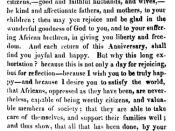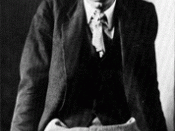The Internet Has Changed Things
Amusing Ourselves to Death by Neil Postman presents the effects upon a culture whose primary means of public discourse consist of a power outlet and an electronic screen. Postman illustrates the changes to public discourse brought about by the transition from a typographic medium to an electronic medium in a brilliant fashion. Dr. Postman goes on to predict what these changes can mean for the future of society. He saw the possibility of a "culture-death"(156) if society is consumed by triviality and entertainment. The rise of the internet has brought about an even greater change in public discourse since this book was published in 1985. Postman lived to see this new medium while it was still in it's infancy. The internet has now become the primary means of public discourse for a large chunk of the population of the world. The most significant concept that Dr.
Postman presents is that Aldous Huxley's vision in Brave New World was coming startlingly true in 1985, and now that observation is more relevant than ever with the rise of the internet. This concept looms over the entirety of the book. The most critical points Postman uses to make this claim include the idea that typography is an inherently more rational means of public discourse and television is not, the conclusion that television has infected every aspect of our lives and turned entertainment into our primary standard of truth, and how the glut of information and entertainment around us has left us in a sea of irrelevance and inaction. These concepts are greatly accentuated by the internet. The internet has changed things.
The idea that typography is an inherently more rational form of public discourse than television is not is an idea that many will struggle to accept. I...


